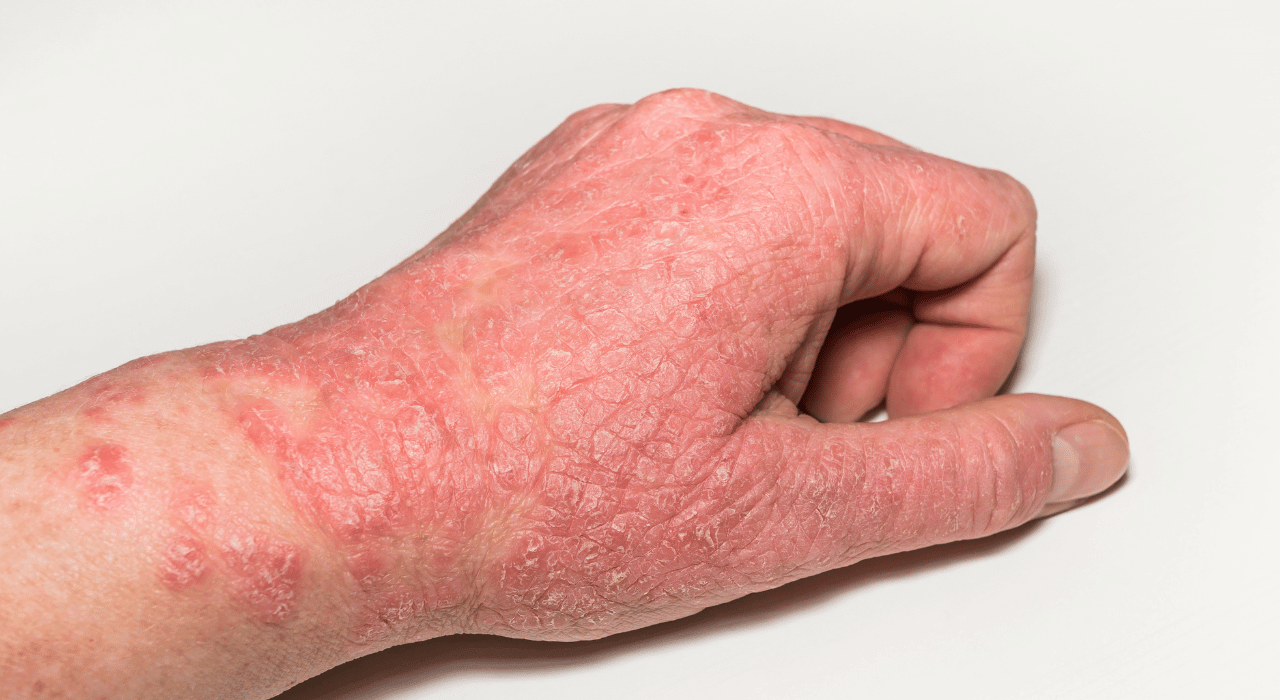Managing the Top Three Common Skin Conditions
At Harley Health Centre, we understand that skin conditions, often seen as mere physical ailments, can profoundly impact individuals’ lives. Beyond the visible symptoms, they often carry an emotional weight, affecting self-esteem and overall well-being. In today’s world, where personal appearance can significantly influence social interactions, understanding and effectively managing common skin conditions becomes essential for both physical and emotional health.
Acne: More Than Just a Teenage Concern
Acne, commonly seen as a problem confined to our teenage years, is a condition affecting people of all ages. Characterised by the appearance of pimples, blackheads, and whiteheads, it’s a result of blocked and inflamed sebaceous glands. Typically manifesting on the face, back, and shoulders, acne’s impact extends beyond the skin, often affecting self-esteem and emotional health.
What Causes Acne?
The onset of acne is closely linked to hormonal fluctuations, particularly evident during puberty, menstruation, and pregnancy. Hormones, especially androgens, stimulate the sebaceous glands, leading to increased oil production and potential blockage of pores. Genetics also play a pivotal role; a family history of acne can increase one’s likelihood of developing the condition.
Lifestyle factors, including diet, stress, and the use of certain skincare products, can exacerbate acne. High glycemic foods and dairy products have been implicated in some cases, while stress can exacerbate the condition by increasing cortisol levels, further stimulating oil glands.
Recognising & Addressing Acne Symptoms
Acne presents itself in various forms, ranging from mild comedones (blackheads and whiteheads) to more severe manifestations like painful cysts and nodules. These lesions can lead to skin redness, tenderness, and, in severe cases, scarring. The psychological impact of acne, particularly in severe cases, can be profound, affecting social interactions and self-perception.
Comprehensive Treatment Approaches
Acne treatment involves a multifaceted approach. Over-the-counter products containing ingredients like benzoyl peroxide and salicylic acid can be effective for mild acne. Prescription medications, including topical retinoids and antibiotics, are used for more severe cases. Hormonal treatments, such as oral contraceptives, can be beneficial in women.
Alongside medical treatments, maintaining a consistent skincare routine with non-comedogenic products is crucial. Lifestyle modifications, including a balanced diet and stress reduction techniques, are beneficial adjuncts in managing acne.
Eczema: The Persistent Itch
Eczema, or atopic dermatitis, is a chronic inflammatory condition manifesting as dry, itchy skin. Prevalent across various age groups, it often starts in childhood and can continue into adult life.
The Triggers Behind Eczema
Eczema’s exact cause remains elusive, but it’s believed to be a combination of genetic and environmental factors. Individuals with a family history of eczema, allergies, or asthma are at a higher risk. Environmental triggers vary widely, including irritants like soaps and detergents, allergens such as pet dander and pollen, and climatic factors like cold and dry weather. Stress and certain foods can also trigger or exacerbate symptoms.
Identifying & Managing Eczema Symptoms
Eczema is characterised by dry, sensitive skin, and intense itching, leading to red, inflamed patches. In severe cases, the skin may ooze or form crusted sores. The itch-scratch cycle of eczema can be particularly distressing, often disrupting sleep and daily activities.
There is no cure for eczema, but effective management revolves around reducing inflammation and alleviating itching. At Harley Health Centre, our dermatologists craft individualised management plans for eczema, focusing on reducing symptoms and improving the quality of life for our patients.
On top of this, we recommend using regular moisturising with emollients, which are fundamental in managing dry skin. Avoiding triggers is crucial, and this may involve changes in skincare products, diet, and lifestyle. Topical corticosteroids and immunomodulators are also often prescribed to control inflammation.
For severe cases, systemic treatments or biologics may be considered. It’s also important to address the emotional aspect of eczema, as stress can worsen the condition.
Psoriasis: More Than Skin Deep
Psoriasis is a chronic autoimmune condition that leads to an accelerated buildup of skin cells. This results in thick, red, scaly patches, often causing discomfort and itching.
The exact cause of psoriasis is not fully understood, but it’s believed to be an immune system malfunction, causing inflammation and triggering new skin cells to form too quickly. Genetic factors play a role, with a family history of psoriasis increasing the likelihood of developing the condition. Triggers for psoriasis flare-ups include infections, stress, certain medications, and injuries to the skin.
Recognising Psoriasis & its Impact
Psoriasis typically manifests as red, inflamed patches covered with silvery scales, most commonly on the scalp, elbows, knees, and lower back. These patches can be itchy and sometimes painful. Beyond the physical symptoms, psoriasis can have a significant emotional and psychological impact, affecting individuals’ quality of life.
Tailored Treatment & Ongoing Care
At Harley Health Centre, the psoriasis treatment is tailored to the individual, depending on the severity and location of the patches. Topical treatments, including corticosteroids and vitamin D analogues, are often first-line therapies. Phototherapy, which involves exposing the skin to certain types of ultraviolet light, can be effective for moderate to severe cases. Systemic treatments, including oral medications and biologics, are reserved for more severe or unresponsive cases.
Regular follow-ups with a dermatologist are important to monitor the condition and adjust the treatment plan as needed.
Understanding these common skin conditions is the first step towards effective management. While these conditions are chronic, they can be managed successfully with the right approach, significantly improving one’s quality of life. If you’re struggling with any of these skin conditions, we here at Harley Health Centre encourage you to consult with our skilled dermatologists for a personalised treatment plan. Remember, your skin health is a vital part of your overall well-being.








